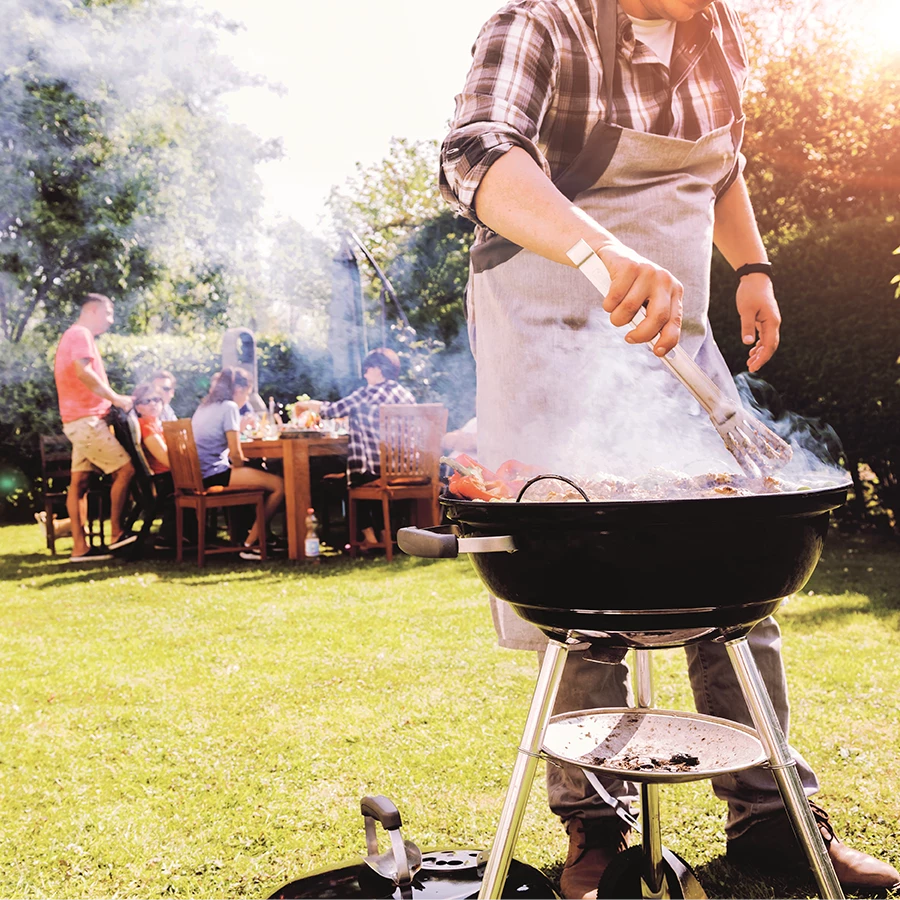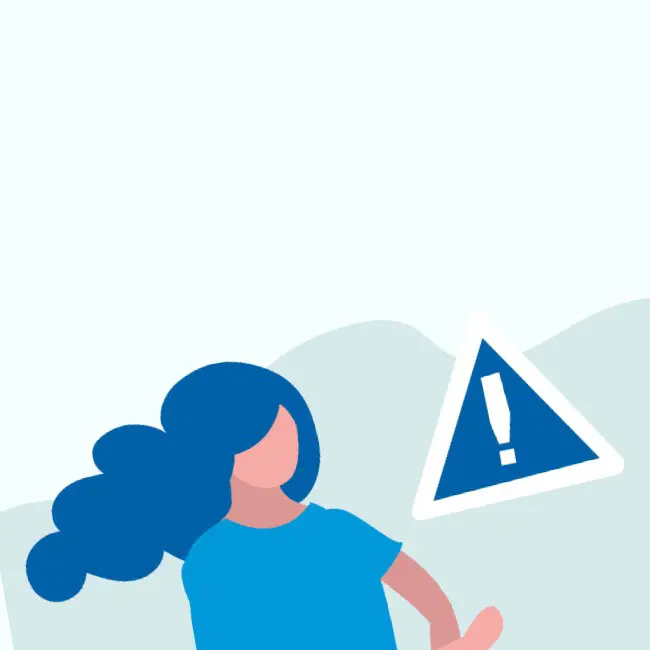Family life is an adventure, and every day is full of excitement and exploration when you’re a child. But being a parent is challenging. We want to teach our children to experience the world and take risks, but we always want to make sure they are safe. And there always seems too much to do and never quite enough time to enjoy our children as much as we want to. Finding the balance can be tough, and as Chief Executive of The Parent Coaching Academy, I work with many families experiencing this challenge. As a working mum, I’m trying to get this balance right myself too.
It’s normal for mum and dad to avoid risk and get used to certain ways of doing things. So it’s no surprise that the Savlon survey reveals that parents struggle to find the time to play in the fresh air with their children, over two-thirds of parents worry about their children playing outside, and 40% of children have never climbed a tree.
Encourage adventure
Like many parents, I wanted to teach my young daughter Holly to ride a scooter. She was so thrilled to get her little hands on those handlebars. They were purple with streaming tassels. It didn’t quite go according to plan. She lost her balance and fell off a lot. There were many meltdowns, tears and bruises along the way – especially when practising downhill! It literally was a roller coaster ride – scary and exciting. I was far more worried about her travelling at speed and hurting herself than she was. But we kept on, little and often. Eventually she cracked it. I can still picture her face on that day. Her gleeful grin when, after all the hard work, she managed to control her scooter for the very first time.
Investing that time and energy is so worth it. There are so many benefits to nurturing our child’s ‘inner adventurer’ – and our own of course. When they do something fun outside, like climbing a tree, riding a bike or swimming in the sea, it boosts their confidence and self-esteem. Especially when they really have to work at it. It’s good for cognitive, physical and emotional well-being, as well as brilliant for boosting confidence, curiosity and imagination. When we adventure outdoors, we’re helping our sons and daughters to develop a ‘can do’ and problem-solving attitude to life.

Make lasting memories
Even more, when we nurture our child’s inner adventurer, we are creating memories that last forever. They connect with those times and can establish long-lasting memories of the event. Neuro-scientists can demonstrate that when we think of a happy childhood experience, look at a picture or talk about it, it replicates pretty closely the patterns of the brain and the strength of emotion that we felt when we first had the experience. We connect again. How powerful is that!
So, I’m a great believer in children having a ‘happy wall’ in their bedroom – packed with pictures of them having fun and doing stuff for the first time. Those images – and all of the associated emotions – are the last thing they see at night and the first thing in the morning. Particularly important on those days when your child may be having a bit of a confidence wobble.

Strengthen your child's ‘Inner Resilience Coach’
I work with children of different ages, strengths and abilities – in secondary and primary schools. There’s no doubt that outdoors is a brilliant tool for mums and dads to help build their child’s resilience. For children who struggle at school, be it with maths, reading or friendship issues, giving them the opportunity to excel at something else and outdoors can transform them. A child who struggles academically will often have a very energetic and visual mind, feeling more confident in the fresh air than they do in the classroom.
Max is 10 and he finds school tough. He has dyslexia. Reading and writing are stressful for him. But he loves being outside. His idol is Bear Grylls. In the open air, he challenges himself. He is confident, a leader, and determined. He gives it his all when he’s trying to get to the top of the climbing frame or light a campfire. He’s very kind and supportive of children who aren’t so confident. Because he knows what that’s like to struggle. Max’s skills, strengths and qualities are transferable. He doesn’t leave them in the park or wood. He takes them into school with him. His mum and dad have been working hard to remind him of this. They make the connections between that area of his life where he feels really resilient, and the one where he doesn’t. They are specific about the values, and qualities he demonstrates. They talk about them. They celebrate them. They are nurturing his inner resilience coach, with evidence. The confidence he is gaining from his adventures outside are boosting his belief in himself, and his performance in the classroom.
My latest book, ‘Super Coach Arty Vs The Shadow’ – Taking the fear out of failure’ is packed with ideas from children, like Max, about strengthening the voice of their ‘inner resilience coach, their inner adventurer’ and managing tough emotions like the fear of failure and having a go.

Learn from your child
After a recent storm, I was walking behind a mum with her two young children, Harry and Alice. They were wrapped up in raincoats and gleefully jumping into puddles with their wellies. But in one moment, the laughter turned to tears when Alice slipped and landed bang in the middle of the puddle. Soaked and shocked. There was silence and then a tearful meltdown. Mum looked really stressed – understandably - and couldn’t console her daughter. Harry on the other hand, smiled and put out his arms like a superhero circling the puddle.
‘Hang on Alice, I’m coming to save you!” He jumped into the puddle, pulled her up and swung her around. By the time her feet reached dry ground, she was giggling. Mum was relieved. And off they went again, laughing about that shared experience. We can teach our children a lot. We can also learn so much from them.
Children are naturally more adventurous than their parents, much more likely to ‘live in the moment’. So today, take a minute to notice the adventurer in them and tell them what you see. They may take time to stroke a dog, touch a plant, wonder at a worm wriggling along the pavement. Set them some fun challenges and let them use their imagination and find creative solutions to problems. Enjoy watching them becoming independent and making their own decisions and choices. The outdoors is a great classroom and ideal for us to encourage that spirit of adventure in our children. By helping them to deal with the bumps in the road, we are strengthening their resilience muscle, their inner adventurer. We’re giving them the resources to climb life’s mountains – whatever it looks like - and have fun along the way.

Create time when you have no time & cut stress levels
Encouraging playing outside has many benefits. But then there's the issue of finding time to actually do it. Family lives are busy. There’s always so much to do and never quite enough mum or dad to go around. We hear a lot said about ‘Time Management’. I always think that time management is really all about energy management. If you manage your energy – and your family’s – you will create more time and have more fun. We’ll always be able to create the time to do things we are really motivated to do. That’s why looking after yourself as a parent is vital – not a luxury. Make sure you and your family are getting their vital 5-a-day – sleep, exercise, healthy diet, fun and love.
Be kind to yourself. We busy parents can’t be 100% mum or dad all of the time. But we can be 100% some of the time, and it’s those times that are vital. Create time, even if it's just 10 minutes to do something fun, adventurous and unstructured. It’s great for us parents too. Adults as well as children feel more relaxed in the fresh air and it allows us to detach from life’s everyday pressure and take a moment to breathe. Active families are much more likely to get a good night’s sleep and this is key to our wellbeing.
At the Parent Coaching Academy, we surveyed 1,000 children and 9/10 of them said they felt ‘stressed on a daily’ basis. They also said that their parents ‘often’ seemed stressed and ‘often’ shouted when they were. I struggle with this too and just like many parents, I’m working on it. Ask my children, they’ll say I still have a lot of work to do!
Finding the time to get outdoors, even for a short time, will have a positive impact on how you feel. So try to spend some time outside, even if it’s just a walk around the block and it will help you feel more relaxed. Our bodies can’t feel tense and relaxed at the same time. So as soon as you do something that helps to relax you, your stress levels begin to drop.
I was talking to a dad, Will, this week. He has three children. He was having a bit of a nag about them spending too long on their screens and not enough on homework. So, he was shocked when the youngest one, Hannah declared, ‘Your most irritating habit is you are always on your phone. You say it’s work. We know it often isn’t. They say you are listening and you never are.’ It struck a chord. She was right. The next time he took them out, he left his phone at home. He said it was liberating – and the world still continued to turn. They went cycling and had a great time. Now, he’s putting that screen-free family time in the diary every weekend.
 |
Long-term impact for children who don't play outside
Research indicates very clearly, the negative health impacts that lack of exercise and not playing outdoors has on children. There are links between obesity and diseases such as type 2 diabetes and longer-term health issues. The physical impact aside, staying indoors all the time affects mental health and wellbeing which can manifest itself in anxiety and depression.
Children who spend long periods indoors are likely to spend more time on their screens and in, what can be, a very pressurised online environment. This behaviour can often lead to children lacking in social skills as they aren’t exposed to the experiences of building real connections with other children.

How healthy are you as a family on a scale of 1-10?
Ask yourself, ‘how healthy are we as a family?’ Rate yourself on a scale of 1 to 10. Where you put yourself really doesn’t matter as one person’s 2, may be another person’s 7. Once you have rated yourself, think, ‘what’s one thing we can do as a family to nudge our way up the scale by a point or two?’ Something that will help you feel healthier and more adventurous, and help you have some fun.
A health-building adventure doesn’t have to take the form of a heavily planned day out. Just by walking back from school, you can have an adventure. If you always walk the same route, do it differently. It’s great for children to have routines, but also great for them to learn to do things differently. To learn at an early age that sometimes things don’t go quite according to plan.
Priya, mum to 8-year-old twins, found the drive home from school very stressful. The roads were busy. Everyone was tired and the boys argued. Last week, she decided to do it differently. She left the car and her mobile phone at home (she loved that and said she felt liberated by being disconnected!) and walked them home instead. They went through the park, kicked a ball around and had hot chocolate. For the first time in a while, she said she felt alive and had fun with her sons. She also found out much more about what they were doing at school. Usually, they would say ‘nothing happened’. But on that day, they were full of conversation.
I began with a story about my little Holly learning to ride her scooter. Well, Holly is 18 now and in August she will be in India for a year. She is volunteering to work in a school for children with disabilities. I feel like I did all those years ago – excited and thrilled for her. And a little scared about what the whole experience will be like for her. I’m nervous. She’ll be alone in a distant country with very limited resources. So I’m digging deep. I know that Holly’s inner adventurer is about to start a whole new chapter.
Author: Lorraine Thomas
Lorraine Thomas is Chief Executive of The Parent Coaching Academy. She is the author of, Super Coach Arty Vs The Shadow, The Mummy Coach, The 7-Day Parent Coach, Brilliantly Behaved Toddler and Get A Life. She is an ambassador for The International Positive Education Network.
Lorraine develops initiatives with companies and schools wanting to support and empower parents. Her clients include Disney, Goldman Sachs, Deloitte, Oasis Academies, Cognita Schools and Barclays.






